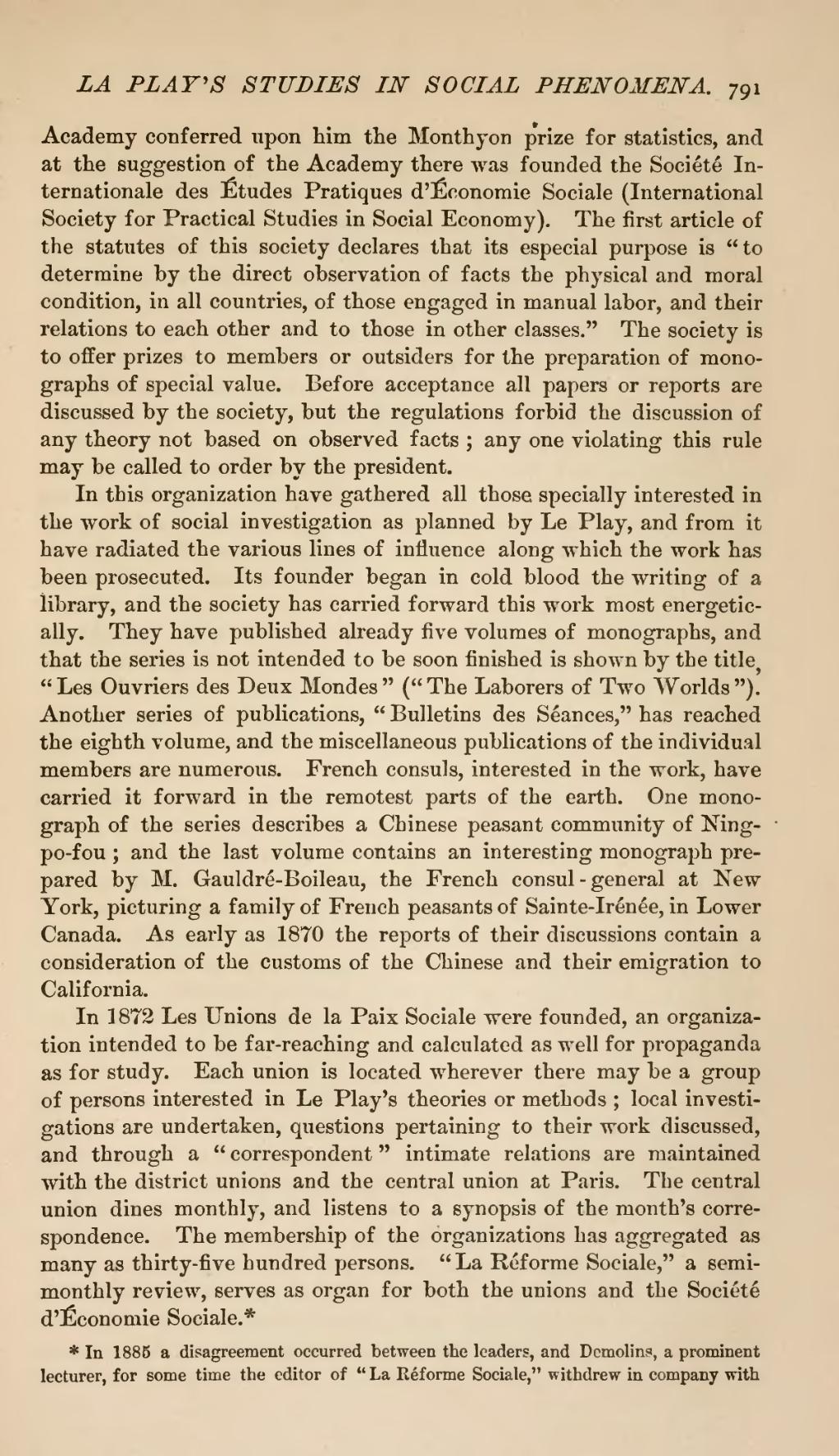Academy conferred upon him the Monthyon prize for statistics, and at the suggestion of the Academy there was founded the Société Internationale des Études Pratiques d'Économie Sociale (International Society for Practical Studies in Social Economy). The first article of the statutes of this society declares that its especial purpose is "to determine by the direct observation of facts the physical and moral condition, in all countries, of those engaged in manual labor, and their relations to each other and to those in other classes." The society is to offer prizes to members or outsiders for the preparation of monographs of special value. Before acceptance all papers or reports are discussed by the society, but the regulations forbid the discussion of any theory not based on observed facts; any one violating this rule may be called to order by the president.
In this organization have gathered all those specially interested in the work of social investigation as planned by Le Play, and from it have radiated the various lines of influence along which the work has been prosecuted. Its founder began in cold blood the writing of a library, and the society has carried forward this work most energetically. They have published already five volumes of monographs, and that the series is not intended to be soon finished is shown by the title "Les Ouvriers des Deux Mondes" ("The Laborers of Two Worlds"). Another series of publications, "Bulletins des Séances," has reached the eighth volume, and the miscellaneous publications of the individual members are numerous. French consuls, interested in the work, have carried it forward in the remotest parts of the earth. One monograph of the series describes a Chinese peasant community of Ningpo-fou; and the last volume contains an interesting monograph prepared by M. Gauldré-Boileau, the French consul-general at New York, picturing a family of French peasants of Sainte-Irenée, in Lower Canada. As early as 1870 the reports of their discussions contain a consideration of the customs of the Chinese and their emigration to California.
In 1872 Les Unions de la Paix Sociale were founded, an organization intended to be far-reaching and calculated as well for propaganda as for study. Each union is located wherever there may be a group of persons interested in Le Play's theories or methods; local investigations are undertaken, questions pertaining to their work discussed, and through a "correspondent" intimate relations are maintained with the district unions and the central union at Paris. The central union dines monthly, and listens to a synopsis of the month's correspondence. The membership of the organizations has aggregated as many as thirty-five hundred persons."La Réforme Sociale," a semimonthly review, serves as organ for both the unions and the Société d'Économie Sociale.[1]
- ↑ In 1885 a disagreement occurred between the leaders, and Demolins, a prominent lecturer, for some time the editor of "La Réforme Sociale," withdrew in company with

